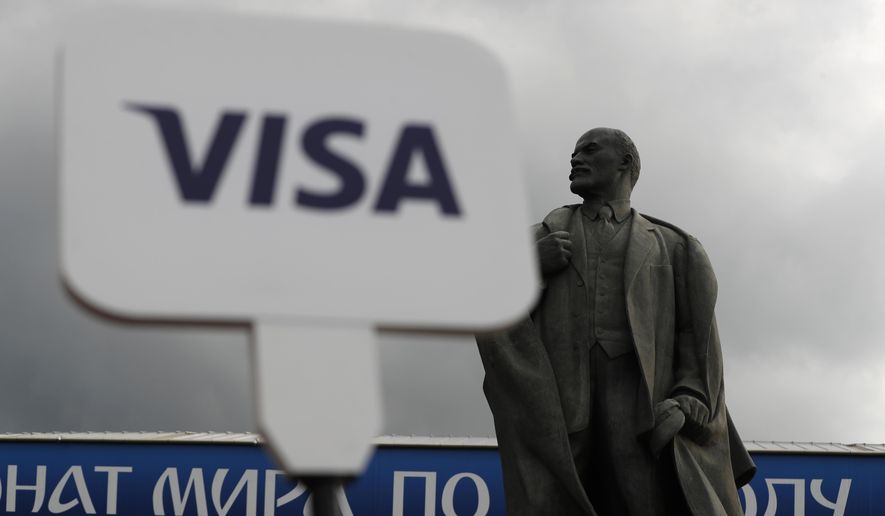Russia’s Central Bank has reportedly warned leading financial institutions across the country that they could soon be disconnected from the global Visa and MasterCard credit card payment systems because of U.S. sanctions.
Russia’s central bankers appear concerned over provisions in the Countering America’s Adversaries Through Sanctions Act (CAATSA), which target banks involved in “substantial transactions” with Russian enterprises connected to Moscow’s army and intelligence agency.
Lawmakers returning to Capitol Hill in January are widely expected to resume reviewing sanctions bills, including CAATSA, which was signed by President Trump in August 2017.
Late last week, the Russian-language business daily Vedomosti reported that the Central Bank sent letters out recommending the country’s leading lenders take preventive measures in case partner banks abroad cut access the Visa and MasterCard payment systems.
The list of targeted Russian banks includes the RNKO Payment Center; Uralsib; Russia’s second-biggest bank VTB; Rosbank, the Russian subsidiary of the international financial group Societe Generale; and the privately owned Promsvyazbank.
U.S. analysts suggested that Russian officials are bracing for new action on Capitol Hill and preparing for a worst-case scenario.
“The administration’s actions to counter Russia’s malign activities have been steadily increasing and should continue to do so in the face of the Kremlin’s ongoing destabilizing behavior,” said Boris Silberman, a Russia analyst for the Foundation for the Defense of Democracies, a Washington think tank.
“However, he added, “these actions, while having measurable impact in some instances, have yet to elicit changes in the Kremlin’s behavior.”
Some analysts argue the Kremlin is maneuvering in anticipation of even harsher U.S. sanctions, including the possibility of penalties discussed last summer in a bipartisan Senate bill described by co-sponsor Sen. Lindsey Graham, South Carolina Republican, as the “sanctions bill from hell.”
That proposal could extend existing sanctions on Russia, in addition to imposing fresh ones, including penalties that restrict investments into Russian government bonds.
Experts noted that disconnecting Russian banks from the Visa and MasterCard systems would render Russian bank cards invalid abroad but not impact payments made within the country.
According to Russian financial media, concerns over CAATSA were recently raised by Russia’s largest bank, Sberbank.
During a meeting earlier this month, Sberbank CEO German Gref warned wealthy clients that Russia’s banking sector could be in for a turbulent ride.
“What will happen by March-April, when [the Americans] promise to review this issue, only God knows,” Mr. Gref was reported as saying.
Russian banks have endured bans from the credit card payment system before. In 2014 and 2015, Visa and MasterCard blocked services to some institutions as a result of U.S. sanctions related to Russia’s annexation of the Crimea.
When Bank Rossiya announced it had been sanctioned, Russian President Vladimir Putin responded by saying the institution had nothing to do with events in the Crimea and promised to transfer his wages there.
• Dan Boylan can be reached at dboylan@washingtontimes.com.




Please read our comment policy before commenting.